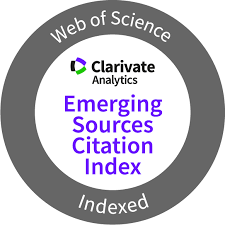Circular economy
relationship with the evolution of the concept of sustainability and strategies for its implementation
Keywords:
Circular economy, Sustainability, Sustainable product design, Sustainable business modelsAbstract
The circular economy is a paradigm that aims to generate economic prosperity, protect the environment and prevent pollution, consequently, facilitating sustainable development. The growing interest of governments, industry, and society in the implementation of the circular economy has led us to inquire about its direct connection with the ultimate goal of this paradigm: sustainability. For this purpose, an analysis of the scientific articles published in this last century on this concept has been made. As a result, we conclude that the Circular Economy is a paradigm of action that has evolved from the concept of sustainability and its application in the economy, society, and the necessary care of the environment that surrounds us. Accordingly, the Circular Economy has become a paradigm that seeks sustainable development, proposing different strategies throughout the chain of production and use of products and services. For this purpose, the article proposes five concrete fields of action and presents strategies for sustainable design to achieve the circularity in the processes, allowing the production and sustainable consumption.


















